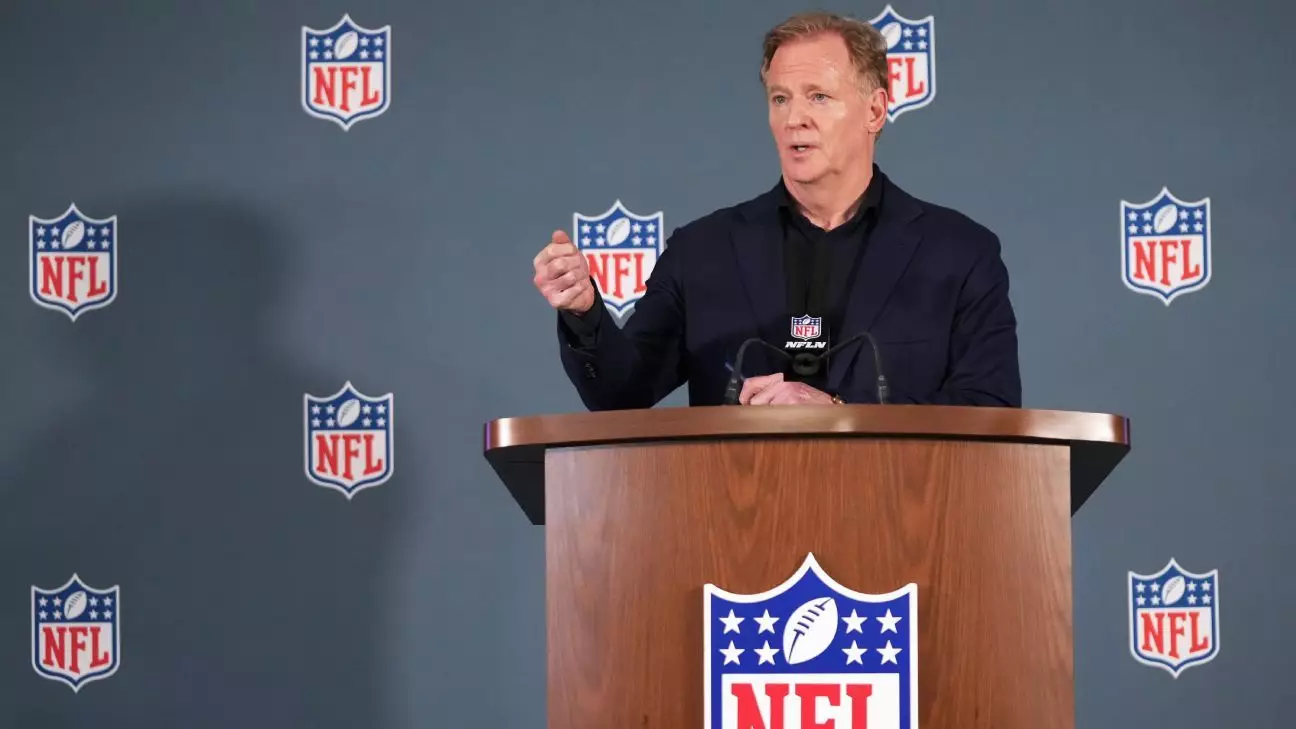The notion of adding flag football to the Olympic roster has ignited palpable enthusiasm among NFL players and fans alike. It’s not just about the sport; it’s about the opportunity for athletes to represent their heritage on one of the world’s largest stages. NFL Commissioner Roger Goodell emphasized the eagerness expressed by many players to don their national colors, illustrating that there’s more at stake than just a game. The inclusion of flag football in the 2028 Los Angeles Olympics heralds a transformative moment for football as a global sport.
Flag football, while closely tied to American football, simplifies the game, making it more accessible and less injury-prone. This inclusion in the Olympics reflects a significant evolution in how sports can be interpreted and enjoyed worldwide. The support from the NFL only emphasizes its commitment to not only expanding the sport’s reach but also encouraging international play. This isn’t just a promotional endeavor; it’s also an opportunity to build relationships through athletic competition on a global scale.
The Challenges Beneath the Surface
Despite the buzz surrounding flag football’s Olympic debut, Goodell acknowledged potential obstacles the NFL must navigate. Issues related to player safety and scheduling conflicts are pressing matters that require careful deliberation. The Olympic Games run from July 14-30, 2028, a period that coincides with the traditional beginning of NFL training camps. The delicate balance between player health and career commitments will undoubtedly pose a challenge.
While the prospect of injury risks is always a concern in contact sports, flag football is seen as a low-impact alternative. However, the uniqueness of this situation—that players will be representing their teams and nations—complicates the decision-making process. The NFL must approach these discussions holistically, ensuring that players feel protected while still honoring their desire to compete for their countries.
Commitment to Diversity in the League
In addition to Olympic discussions, Goodell addressed the vital issue of diversity within the NFL. The league has faced scrutiny for the lack of representation, particularly in key roles such as coaching. In light of this, Goodell reiterated the NFL’s commitment to diversity, equity, and inclusion, despite substantial pushback against such initiatives. His assertion that diversity enhances the league is a refreshing stance that should resonate throughout professional sports.
The NFL may struggle with an apparent absence of Black offensive coordinators, but as Goodell highlighted, talent is abundant across the spectrum. The room for improvement is tangible, yet it’s essential to foster environments where diverse candidates have equitable opportunities. The Rooney Rule, implemented to ensure interviews with underrepresented candidates, continues to be a pivotal component in shaping the league’s future.
Jerry Jones, Dallas Cowboys owner, backed the Rooney Rule, illustrating that change is welcome among key decision-makers. However, evolving systemic structures to create sustainable pathways for diverse talent must remain a priority. Genuine progress necessitates intention and commitment, but it can yield a league that reflects the America it entertains.
A Stalemate on Player Issues
While the conversations around the Olympics and diversity are ongoing, another pressing issue looms over the NFL: the unresolved allegations against Baltimore Ravens kicker Justin Tucker. With accusations from 16 massage therapists regarding inappropriate behavior, the situation is complex and sensitive. Goodell’s avoidance of speculation demonstrates the league’s intent to handle this internally until a resolution emerges.
This kind of situation highlights the need for transparency and accountability within the NFL. As a powerful institution, the league must tackle these issues head-on to protect its athletes and uphold its reputation. While Goodell insists that updates will not be forthcoming, the continuous nature of investigations like Tucker’s raises questions about how the NFL can improve its response systems in these sensitive matters.
The future of flag football at the Olympics is bright, but it casts a shadow of challenge and complexity. The NFL’s acknowledgment of these pressing issues underscores the dynamic, ever-changing landscape of professional sports, encapsulating not only athletic passion but also deeper societal responsibilities. The road ahead involves navigating numerous hurdles, but it’s a journey filled with promise if handled thoughtfully.

